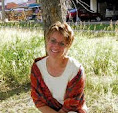The power of Once Upon a Time
The Storytelling Animal: how stories make us human by Jonathan
Gottschall is a fantastic read about the perpetual story craving and creating
that humans imbibe in constantly.
This is more for
professional reading rather than for kids.
For all us story junkies this is a wonderful validation for our
addictions but it also informs us as to the power of this addiction, too.
Humans need stories to help
us figure out life.
And story is everywhere.
This is not just about
reading stories. It’s about seeing and
listening to stories, as well.
The author recounts how a
country song (not his usual musical milieu) had him in tears. The song is about
a young man meeting his girlfriend’s parents and realizing that the little girl
dressed as a princess in the photos in the room is his girlfriend as a child and
that he is taking something away from the father - that he is stealing
the princess. Jonathan Gottschall wanted
to delve into knowing more about why this story had affected him so strongly.
So delve he does, into the nature,
manner and opportunities where humans indulge in story. Child’s play, dreaming, and everyday life
with us featuring as the heroes: all is
story telling and story making and it comes to us as naturally as breathing air.
I really tapped into a chapter
entitled Ink People Change the World for
a couple of workshops that I've just done about the nature and power of
stories. Education instructors wanted their student-teachers to explore this idea
and think about how to capitalize on it when they will be teaching children in
their own classrooms.
Gottschall tells true
stories about real people being affected so strongly by a story that it gives
them some life-changing insight.
Apparently, Hitler, as a
sixteen-year-old, heard Wagner’s opera Rienzi
and it so moved him he told a friend that his destiny had been revealed to
him. “He was talking of a mandate which,
one day, he would receive from the people, to lead them out of servitude to the
heights of freedom.” (p.140). Hitler told many of his inner circle that the
opera “was when it all began” (p.142).
Because of Wagner’s brilliance as a composer, Hitler also tapped into
some of Wagner’s political and personal beliefs – extreme German nationalist
and strong anti-Semitism.
Besides anecdotal evidence,
recent research does support the impact of stories and their influence:.
Fiction does mold our minds. Story –whether delivered
through films, books, or video games – teaches us facts about the world;
influences our moral logic; and marks us with fears, hopes, and anxieties that
alter our behaviour, perhaps even our personalities. (p. 148)
And
In fact, fiction seems to be more effective at
changing beliefs than nonfiction, which is designed to persuade through
argument and evidence. (p.150)
And,
one more
When we read nonfiction, we read with our shields
up. We are critical and skeptical. But when we are absorbed in a story, we drop
our intellectual guard. We are moved
emotionally, and this seems to leave us defensiveness. (pp.151-152)
I find all of this fascinating. Stuff that I intuit but couldn't necessarily
articulate let alone prove, is all here.
Story is important and it does shape us.
It kinda makes sense why people who are against same-sex couples get their knickers in a knot when
they read a book like And Tango Makes Three, doesn't it?














0 comments:
Post a Comment